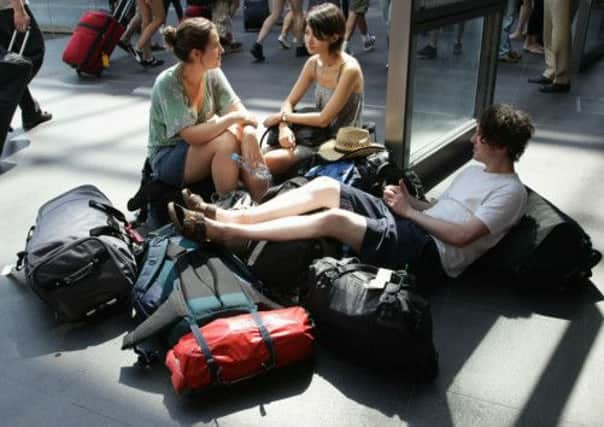Jane Devine: A gap year no longer a rich kid thing


The notion of taking time off to travel after school and before further study or work was the preserve of the rich when I went to university in the early 1990s, thus the sloaney-type pronunciation of “year”. But now, taking a year out is common place with thousands of young people heading off to see the world, with many spending time volunteering in developing nations along the way.
Radio 4’s Four Thought slot last week was about the impact that short term volunteering such as this has had in Cambodia. There, a veritable industry has risen up around these young people which has seen a rise in the numbers of children in orphanages, many of whom are not orphans, in order to feed the demand from international visitors wanting to “help”.
Advertisement
Hide AdAdvertisement
Hide AdThere are stories of schools being painted four times over and houses being (badly) built by people with no experience at all. In some places, volunteering has become more about funding a corrupt state than any notion of help.
Couple that with the stereotype that “gap yearers” are arrogant young people going abroad, getting drunk, filling up their cv with “volunteering experience” and coming back, skint, ready to matriculate, and gap years could get a bad name.
Except, that would be unfair – there is a different side to this experience. There are organisations that assist useful volunteering, who don’t think that an 18-year-old, fresh from sitting Highers, knows how to build a road; and there are young people out there for whom this is a life-changing experience.
I spoke recently to a young man who was heading to Asia to volunteer for six weeks. He had grown up in care. There are 16,000 children and young people in care in Scotland today. These young people grow up without the family support that many of us take for granted. They also grow up with a stigma that society puts upon them which sees them as trouble, not troubled, as many of them are.
Volunteering in a foreign country where everything is different can be a chance for these young people to feel normal for a change, and leave all that behind. They won’t get homesick – there is often no-one to miss; and who cares if the food is different, it has been in every foster care placement they’ve been in.
For once they are the same as everyone else: no one there has family to go home to at night either. This can be an enormously freeing experience and crucially it can give these young people some of the confidence they need to begin to live the life they want to.
So, let’s not write-off the gap year. It may have been the realm of the rich and privileged in the past, but it can work wonders at the other end of the spectrum too.